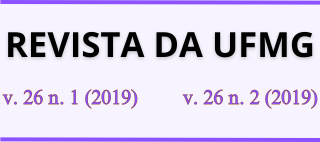Shale Gas in Brazil and in the world
perspectives and paradoxes of the energetic development
DOI:
https://doi.org/10.35699/2316-770X.2019.12640Keywords:
Shale gas, Energy, Sustainable developmentAbstract
This research intends to present shale gas as a resource responsible for promoting an energy revolution on the global stage. In order to do so, we sought to raise general views on the Right to Energy and non-conventional gas - establishing technical characteristics related to the exploration activity. From then on, the scenarios of the “shale revolutions”, especially in the United States of America and China, have been delineated - using gas as a means of satisfying the principle of the efficiency of energy emancipation. Overcoming geopolitical issues, the study has also been concerned with presenting the environmental impacts that unconventional gas exploration can cause. Finally, using the hypothetical-deductive method and the bibliographical research, the paper proposes to question whether the energy revolution by shale gas is compatible with the paradigms of sustainability and the dignity of the human person - and which are the ways to solve the obstacle that is outlined on a global scale.
Downloads
References
AGUIAR, Ivan Araújo de. Revolução do gás de xisto à luz dos objetivos do milênio: análise sobre a estratégia, meio ambiente e interesses brasileiros. Anais do XI SEPesq. 2015.
ARAÚJO, D. et al. Gás de xisto alternativa energética? Experiência americana e modelo para o mercado brasileiro. Anais do Congresso brasileiro de gestão ambiental e sustentabilidade. Congestas, 2014.
BELTODI, Márcia Rodrigues. O Direito Humano a um meio ambiente equilibrado. Florianópolis: UFSC, 2007.
BICO, António Jorge Vale. Shale Gás: Tecnologia, Mercado, Impactos. Dissertação de Mestrado. Universidade de Coimbra, 2014.
BOUDET, H. et all. Fracking controversy and communication: Using national survey data to understand public perceptions of hydraulic fracturing. Energy Policy. v. 65, fev.2014.
BUNCH, A. et al. Evaluation of impacto f shale gas operations in the Barnett Shale region on volatile organic compounds in air and potential human health risks. Science of the total environment, v. 468-469, p. 832-842, jan. 2014.
COSTA, Maria D’Assunção. O direito de acesso à energia: Meio e pré-condição para o exercício do direito ao desenvolvimento e dos Direitos Humanos. Tese de Doutorado, Universidade de São Paulo, 2009.
DAVIES, Richard et al. Oil and Gas Wells and Their Integrity: Implications for Shale and Unconventional Resource Exploitation. Marine and Petroleum Geology, v. 3, p. 309-333. 2014.
GASLAND. Produção de Josh Fox. United States: New Video, 2010.
GOMES, Eduardo. BULZICO, Bettina. Sustentabilidade, desenvolvimento e democracia. Ijuí, Ed. Unijuí, 2010.
KIM, Wow-Young. Solid Earth, induced seismicity associated with fluid injection into a deep well in Youngstown. Journal of Geophysical Research, v. 118, n. 7, Ohio, p. 3506-3518, jul, 2013.
LAGE, Elisa Salomão et al. Gás não convencional: experiência americana e perspectivas para o mercado brasileiro. BNDES Setorial, v. 37, p. 33-88. 2013.
MA, Youngsheng et al. China’s shale gas exploration and development: understanding and practice. Petroleum Exploration and Development, v. 45, n. 4, ago-set. 2018.
MILARÉ, Édia. Direito do ambiente: a gestão ambiental em foco. 8. Ed. São Paulo: RT, 2013.
PEREIRA, Thiago Augusto. Análise das implicações ambientais na extração do gás de xisto. Dissertação de mestrado, Universidade Federal do Triângulo Mineiro. 2016.
PRIEUR, Michel. Droit de l’environnement. 3. Ed. Paris: Dalloz, 1996.
RAY, Jeffery. Shale gas: evolving global issues for the environment, regulation and energy security. LSU Journal of energy law and resources, v. 2, p. 75-93. 2013.
SILVA, Suzana Tavares da. O princípio (fundamental) da eficiência. Anais do III Encontro de Professores de Direito Público, Porto, 2009.
SIMIONI, Rafael Lazzarotto. Princípios do Direito de Energia. Jus Navigandi, 2007.
SOUZA, Ernandes Vaz et al. Gás de xisto como fonte energética. Anais do II CONEPETRO. 2016.
SOUZA, Lucas Dantas Evaristo de. SCHMITT, Guilherme Berger. Gás de xisto: incentivo à degradação ambiental ou solução energética? Revista de Direito Ambiental, v. 84, p. 477-500, out-dez. 2016.
THOMAS, Pierre. Le gaz de schiste: géologie, exploitation, avantajes et inconvenientes. Planet Terre Ens Lyon. Laboratoire de Géologie de Lyon, 2011.
THOMÉ, Romeu. DIZ, Jamile Bergamaschine Mata. Princípio da precaução: definição de balizas para a prudente aplicação. Veredas do Direito: Direito Ambiental e Desenvolvimento Sustentável, Belo Horizonte, v. 15, n. 32, set, 2018.
VEIGA, Eli da. Os desafios do desenvolvimento sustentável no Brasil. In PÁDUA, José Augusto (org.) Desenvolvimento, Justiça e Meio Ambiente. Belo Horizonte: Ed. UFMG, 2009.
YANG, Hong et al. Water Requirements for shale gas fracking in fuling, Chongqing, Southwest China. Energy Procedia, v. 76, p. 106-112, ago. 2015.




